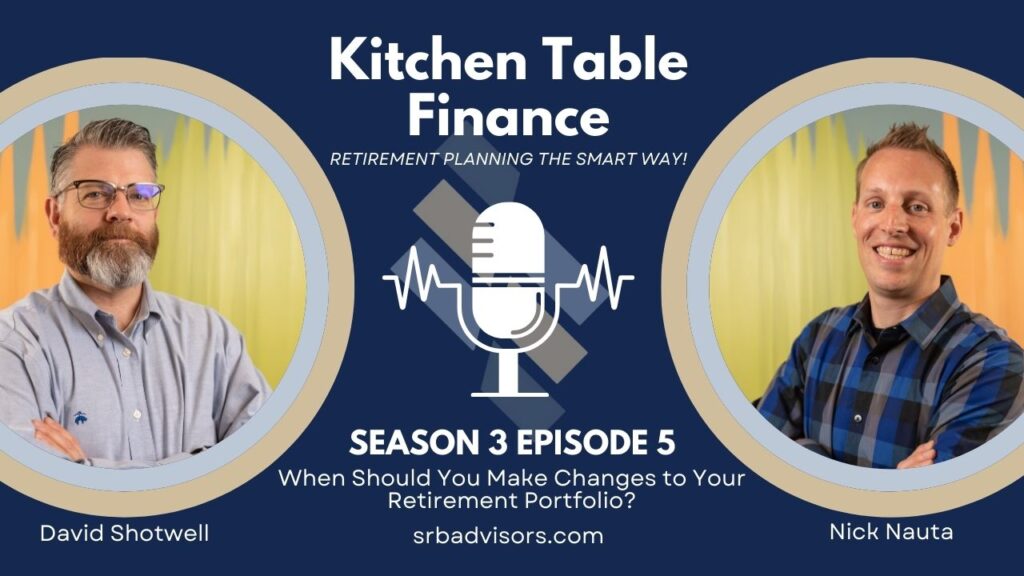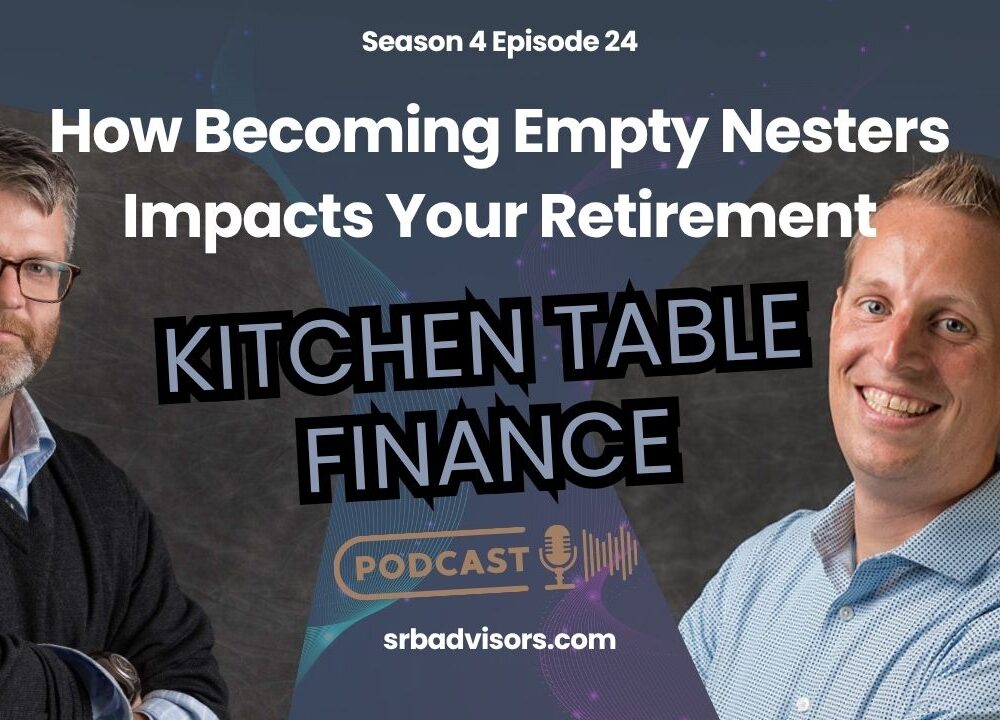S3E5 – When Should You Make Changes to Your Retirement Portfolio?

Podcast: Play in new window | Download
Join Dave and Nick as they discuss the important question of when should you make changes to your retirement portfolio. Or should you? Do you need to? How do you think about your retirement portfolio?
Watch on YouTube HERE
On this podcast, we’ve talked a lot about our investment philosophy of being long-term investors, not market timing, but are there times or reasons that you should be changing your portfolio?
This is timely for us too. Just this week with the help of Mario and Eric at East Bay, our portfolio consultants, we made an allocation change. That’s rare for us.
We’ve changed the individual funds that we use to implement our allocation. We’ve made a few changes over the last year or so, but it’s been a while since we said, “Okay, we want to change the allocations a little bit.”
Fund Changes Versus Allocation Change
Why are we changing a fund? What’s the purpose behind that? Think about portfolio analysis on two levels.
- Allocation: That’s how much you have in stocks versus bonds. Or the subclasses of different types of bonds, different types of stocks, emerging markets versus US small cap stocks.
- Funds: What’s the best fund for emerging markets and internal stocks?
What we’re talking about today is the first level, the asset allocation, not the implementation of which fund to choose.
Short & Intermediate Term Bonds
What we changed this week is how much we have in short-term bonds relative to intermediate-term bonds.
We’ve kept more money in short-term bonds over the last few years because interest rates were really low and only had one direction they could go until last year.
When interest rates are low and they can only go up, rising interest rates are bad for bond prices and push them down. And the longer the bonds are in term, how far into the future they’ve matured, the more they’re affected by that.
- Short-term bonds don’t move down as much when interest rates go up.
- Intermediate-term bonds, (usually range 3-10) move a little more than short-term bonds, but they also pay you more interest while you hold them.
Now that interest rates are higher we’re back to a more normal interest rate environment where interest rates could go down from here. Everybody’s expecting them to, which pushes bond prices up, and intermediate-term bonds respond to that more than short-term bonds. Also, intermediate-term bonds are now paying a reasonable amount of interest to hold them. So we took half of our extra weight in short-term bonds and moved that back to intermediate bonds.
How is this different from our philosophy against market timing?
On the surface, it sounds like we’re timing the market and we’re trying to make a decision based on what’s happening now. However, what we’re looking at here is a long-term structural change in the market. Interest rates were low for a very long time. Now they’re back to a more normal state.
Timing the market would be, “Okay, we think the Fed is going to lower rates substantially by next January, so we’re going to push a whole bunch of extra money into intermediate-term or longer-term bonds to take advantage of that, and then we’re going to shift back.” That’s market timing.
The stock market corollary would be, “We think that small company stocks are going to be the next hot spot in the market, so we’re going to put the extra weight there temporarily to take advantage of that.” That’s market timing.
Instead, what we are doing is looking at a big structural change in the market, not trying to guess what the Fed is going to do today, tomorrow, next month, next quarter, or next year. It can move either way now and the structure of the market has fundamentally changed the risk-reward relationship.
It’s always about what’s going to happen long-term because that’s why we’re investing.
Tune in to the full episode to hear Dave and Nick’s thoughts on this strategy.
About Shotwell Rutter Baer
Shotwell Rutter Baer is proud to be an independent, fee-only registered investment advisory firm. This means that we are only compensated by our clients for our knowledge and guidance — not from commissions by selling financial products. Our only motivation is to help you achieve financial freedom and peace of mind. By structuring our business this way we believe that many of the conflicts of interest that plague the financial services industry are eliminated. We work for our clients, period.
Click here to learn about the Strategic Reliable Blueprint, our financial plan process for your future.
Call us at 517-321-4832 for financial and retirement investing advice.
Share post:
